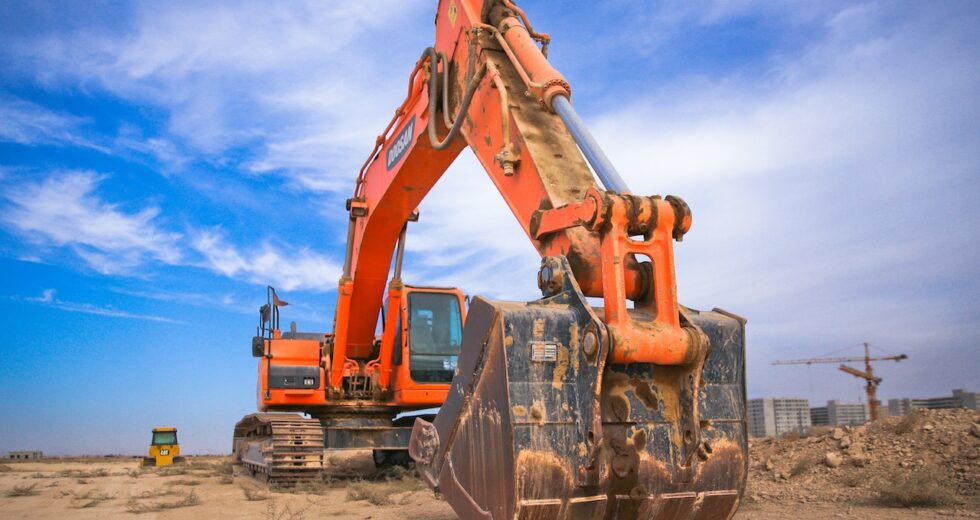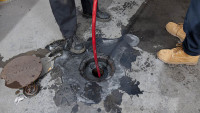Renting a crane is a vital aspect of many construction projects. These massive pieces of machinery are instrumental in lifting and transporting heavy loads. However, the process of crane rentals isn’t as straightforward as it might seem. It involves numerous considerations to ensure safety, efficiency, and cost-effectiveness.
Common mistakes to avoid in crane rentals
This article explores common mistakes often made during this process, providing you with valuable insights to navigate your crane rental journey smoothly.
Understanding the Needs of Your Project
The first step to avoiding common mistakes when renting a crane is to thoroughly understand your project’s needs. Before contacting a rental company, assess the requirements of your heavy lifting. Consider factors like the weight and type of materials you need to lift, the height to which they need to be raised, and the distance they must be transported. Additionally, look at your site’s terrain and available space. By understanding these aspects, you’ll be better equipped to select the right crane. If you’re unsure, consult with an engineer or the rental company’s experts. Renting a crane that doesn’t fit your project’s needs can cause inefficiencies, safety risks, and additional costs.
Choosing the Right Crane for Your Task
Choosing the wrong crane type is a common mistake that can lead to project delays and increased costs. Familiarize yourself with the different types of cranes and their specific uses. For instance, tower cranes are ideal for tall buildings, while rough terrain cranes can operate on uneven grounds. Mobile cranes provide flexibility for projects with changing needs. Telescopic cranes, on the other hand, offer long reach and versatility. Ensuring that the crane type aligns with your project needs will enhance efficiency and safety.
Neglecting the Importance of a Certified Operator
Renting a crane without securing a certified operator can lead to significant issues. Operating a crane requires specialized skills and knowledge about safety protocols, load capacities, and equipment maintenance. Hiring a certified operator ensures that the crane will be used correctly and safely. They can help prevent accidents, equipment damage, and potential legal issues due to non-compliance with safety regulations. Some crane rental companies provide operators, which can be a great solution. Always remember that a crane is only as effective as the person controlling it.
Overlooking Local Regulations and Permits
It’s crucial to understand local regulations and secure necessary permits before renting a crane. This includes knowing load limits on local roads, noise ordinances, and the required distance from power lines. Overlooking these details can result in legal trouble, fines, or project delays. If you’re unsure about the regulations in your area, check with local authorities or ask the crane rental company for guidance. Remember, adhering to rules and regulations isn’t just about staying out of trouble; it’s also about ensuring the safety of your worksite.
Not Factoring in Additional Costs
Finally, be aware of potential additional costs. The price quoted by the rental company may cover just the crane hire. Additional costs can include fuel, transportation to and from the site, operator fees, and setup costs. Be sure to ask the rental company what their quote includes and what additional charges you might incur. Request a comprehensive breakdown of costs to avoid unpleasant surprises later. Carefully reviewing the contract before signing can save you from unforeseen expenses and help keep your project within budget.
Prioritizing Price Over Safety and Quality
When renting a crane, it can be tempting to choose the cheapest option available. However, prioritizing cost over safety and quality can lead to dire consequences. A low-cost rental could mean that the crane isn’t properly maintained or it doesn’t comply with safety standards. This can put your project, workers, and reputation at risk. Instead, ensure that your chosen crane rental services VA have a good track record, maintains their equipment well, and complies with all safety regulations. Even if it costs a bit more, prioritizing safety and quality will ultimately save you from potential losses and liabilities.
Ignoring Maintenance and Upkeep Responsibilities
Cranes, like any heavy machinery, require regular maintenance and inspections. Ignoring these responsibilities can lead to equipment malfunction, accidents, and unexpected downtime. Before renting a crane, discuss maintenance and inspection responsibilities with the rental company. Some companies handle these themselves, while others may pass them onto the renter. Knowing who is responsible for what, and ensuring that these tasks are performed timely and accurately, will help keep your rented crane in optimal working condition, ensuring safety and efficiency on your site.
Failing to Plan for Weather Conditions
A common mistake when renting a crane is failing to account for weather conditions. Inclement weather, such as high winds, heavy rain, or freezing temperatures, can impact crane operation and pose significant safety risks. It’s crucial to understand how different weather conditions can affect your crane rental and how to mitigate those risks. For example, consider the time of year you’re renting and the typical weather patterns in your area. Prepare contingency plans for potential weather-related disruptions to minimize downtime and ensure safety.
Not Considering Access and Setup Space
When renting a crane, it’s essential to consider the access and setup space on your construction site. Without adequate space for the crane to be delivered, set up, and operated, you may encounter unexpected challenges or delays. Land surveys are a useful tool to identify potential access issues and plan for crane setup. Ensure you have cleared any obstacles and have a stable, level surface for the crane to operate on. Proper planning regarding access and setup space can save you time, reduce risks, and improve efficiency on your site.
A major mistake is not utilizing the expertise of the crane rental company. These companies have extensive knowledge about their equipment and can offer valuable advice. From helping you choose the right crane for your project, to providing insights about operation and safety, their expert guidance can be instrumental. Don’t hesitate to ask questions and take their advice into consideration when making decisions about your crane rental.
Ignoring Insurance Coverage
Insurance is a crucial aspect often overlooked when renting a crane. Without appropriate insurance coverage, you could face significant financial liabilities in the event of accidents or equipment damage. Check with the rental company about what their insurance covers, and verify with your own insurer whether you need additional coverage for crane rentals. Ensuring you’re adequately covered can protect you from potential financial setbacks.
Conclusion
Avoiding common mistakes when renting a crane involves a multifaceted approach. It requires understanding your project’s needs, choosing the right crane, prioritizing safety and quality, utilizing rental company’s expertise, planning for weather conditions, understanding access and setup space, and ensuring proper insurance coverage.
By being mindful of these aspects, you can make informed decisions that enhance your project’s success and safety. Remember, the goal is not just to rent a crane, but to optimize its use in a way that drives your project forward efficiently and safely. It will also help you choose rigging services DC the proper way.





